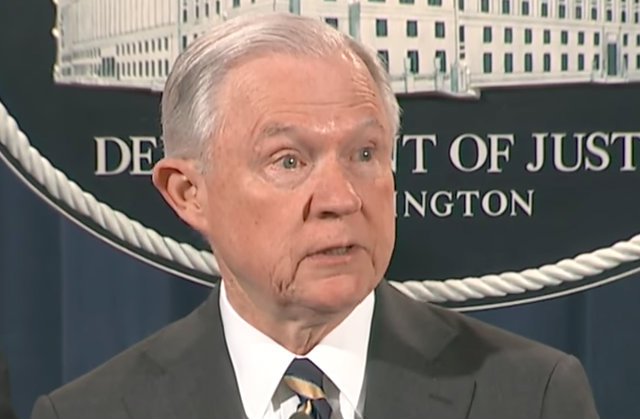
The DOJ also sent this press release out last month:
06/29/2017 12:00 AM EDTToday Attorney General Jeff Sessions met with families who have lost loved ones because of crimes committed by illegal aliens. In the meeting they discussed the progress being made by the Trump Administration to strengthen laws protecting Americans from crimes committed by illegal aliens and, the need to keep working to ensure that federal immigration laws are enforced.
Advocates for immigration reform contend that the term “illegal” is a “racial slur” and believe it is dehumanizing. Instead, they prefer if the term “undocumented immigrant” is used.
“They’re using a legally inaccurate term that’s deployed to unfairly label and scapegoat people who are out of status due to a variety of systemic circumstances,” Xakota Espinoza from the Center for Racial Justice Innovation, told LawNewz.com
Most major news outlets have not used “illegal immigrant” for several years now. Only conservative media organizations like Breitbart and The Daily Caller still utilize the term. President Barack Obama, in his speeches, steered clear of the words, and so do some Republicans.
“The i-word is legally inaccurate, politically loaded, dehumanizing to the people it describes and likely unintentionally fuels racial profiling and violence directed toward immigrants,” Espinoza explained.
Advocates point to the 2012 Supreme Court ruling in which Justice Anthony Kennedy wrote, “As a general rule, it is not a crime for a movable alien to remain in the United States.”
In conservative circles, the term “illegal immigrant” is frequently used in the immigration battle. President Donald Trump has used the term repeatedly on Twitter during his term, and on the campaign trail.
“I think this cuts to the heart of the debate over sanctuary cities and to what extent local law enforcement should cooperate with immigration authorities. Important legal nuances are reflected in words we use. A ‘detainee’ is not a ‘prisoner,’ for instance,” wrote Ted Slowik in a recent opinion piece for The Chicago Tribune.
We reached out to the Department of Justice to find out more about why the decision was made.